Easy Reading worksheets activities for Ages 4-7
9 filtered results
-
From - To
Discover the joy of learning with our Easy Reading Worksheets for children ages 4-7! These engaging activities are designed to enhance early literacy skills while making reading fun and accessible. Packed with colorful illustrations and age-appropriate content, our worksheets promote phonics, vocabulary, and comprehension. Perfect for home or classroom use, these resources help young learners build a strong foundation in reading. Watch your child's reading confidence soar as they complete activities tailored to their skills and interests. Explore our wide range of worksheets today and ignite a lifelong love of reading in your little ones!
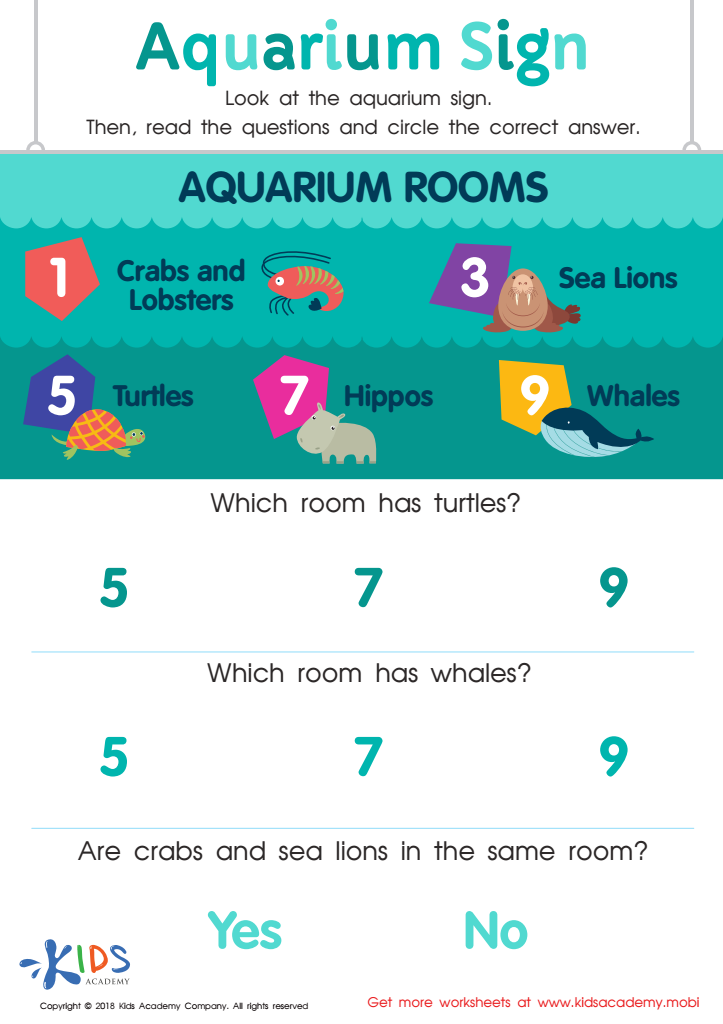

Assessment: Aquarium Sign Worksheet
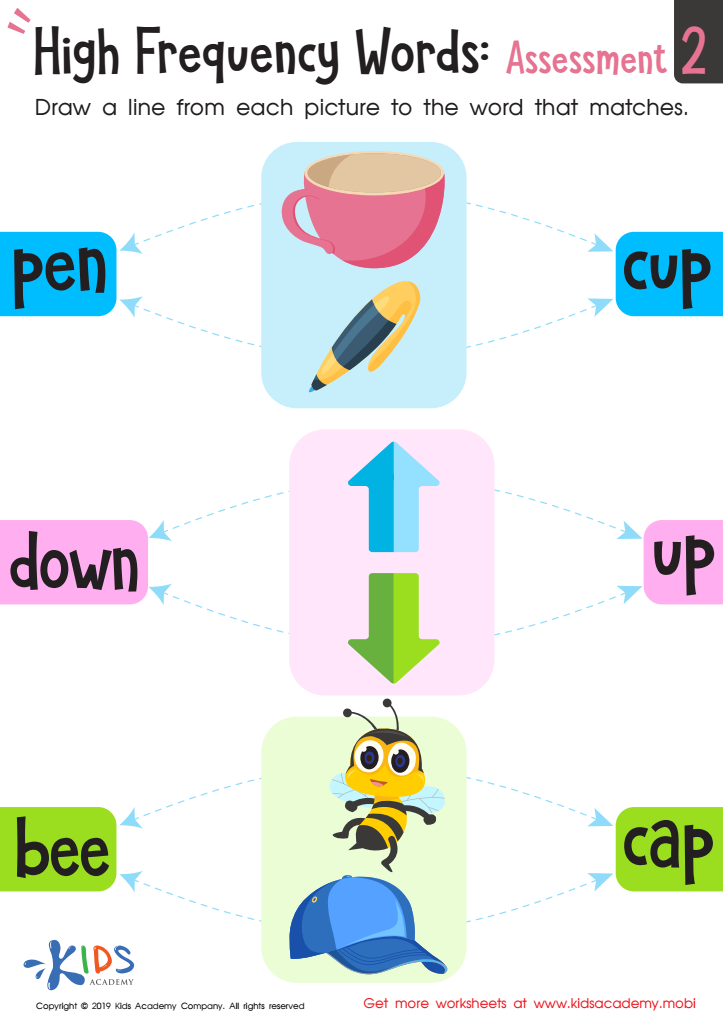

High Frequency Words: Assessment 2 Worksheet
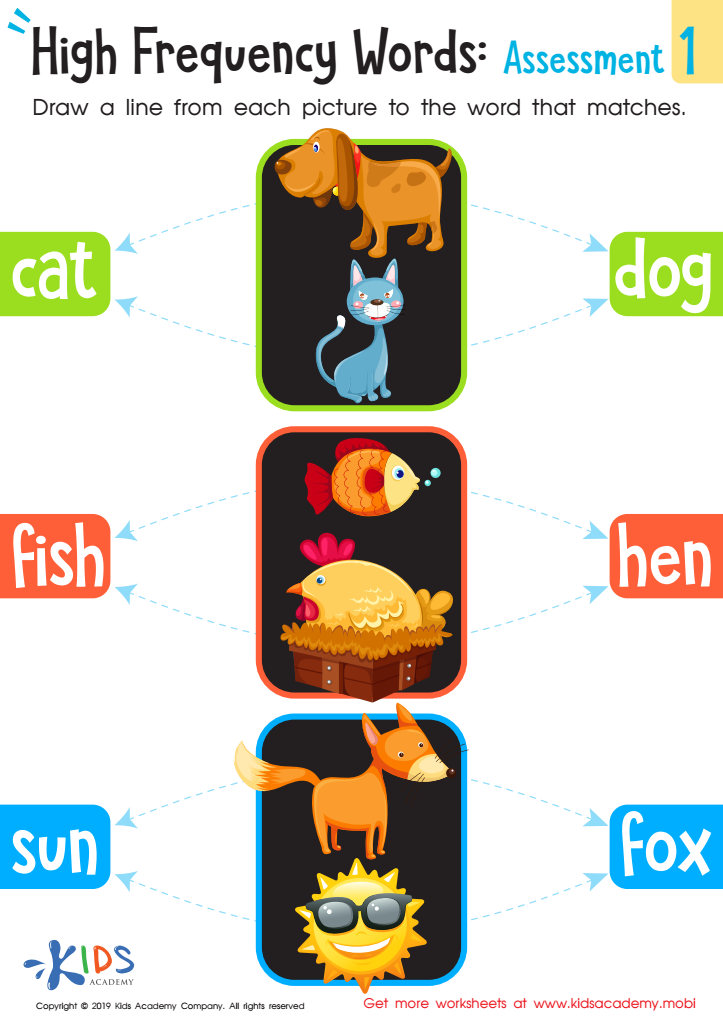

High Frequency Words: Assessment 1 Worksheet
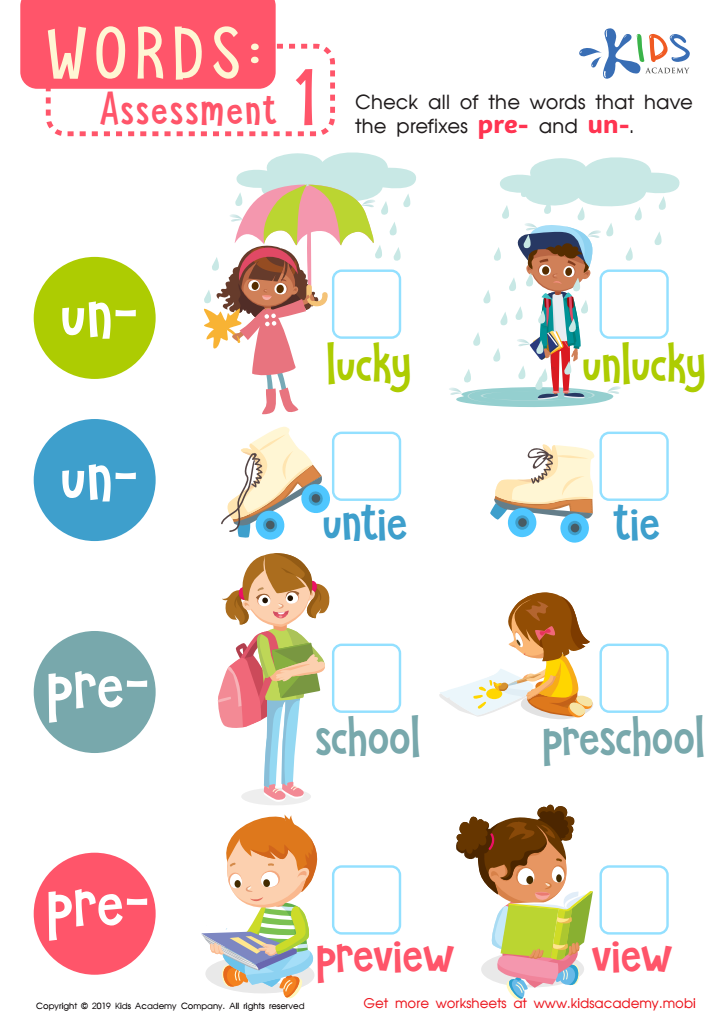

Words: Assessment 1 Worksheet
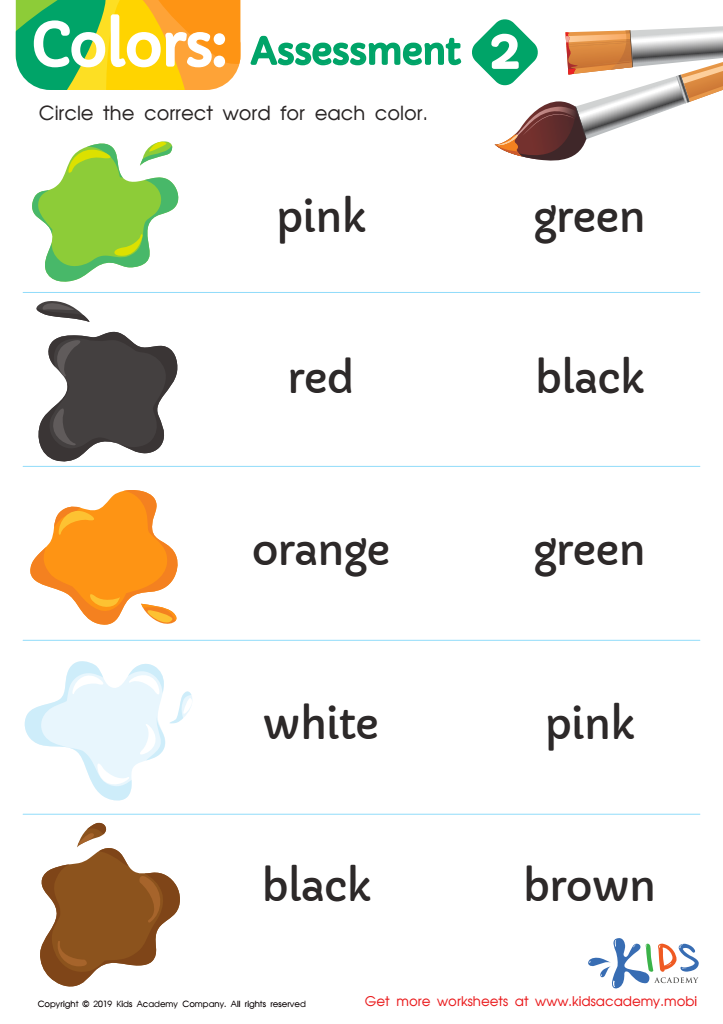

Colors: Assessment 2 Worksheet
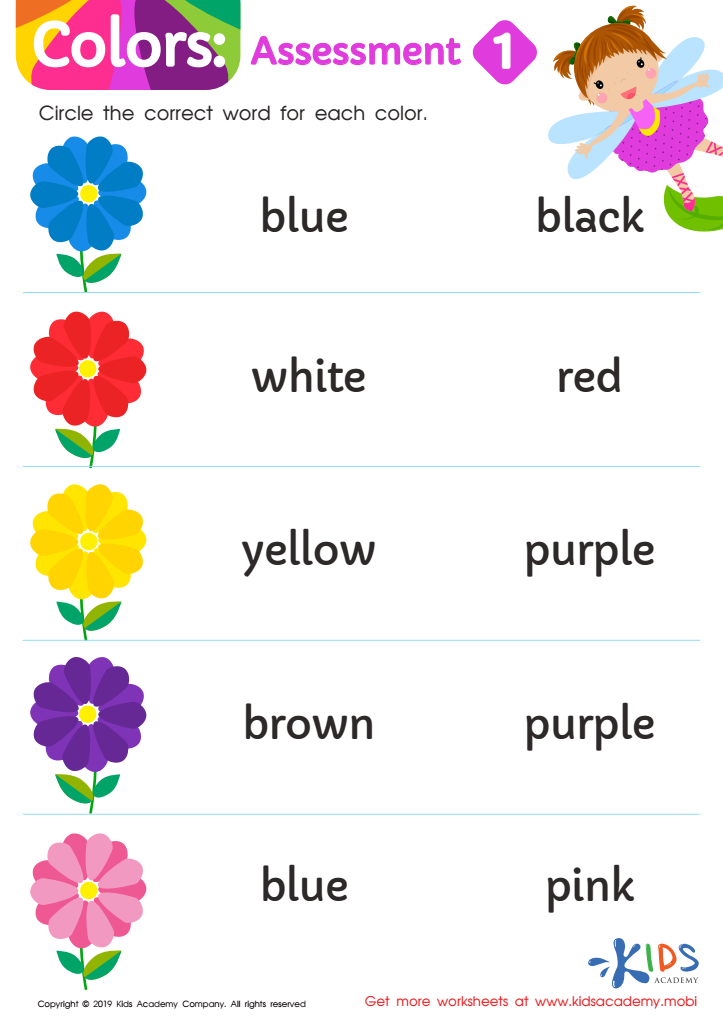

Colors: Assessment 1 Worksheet
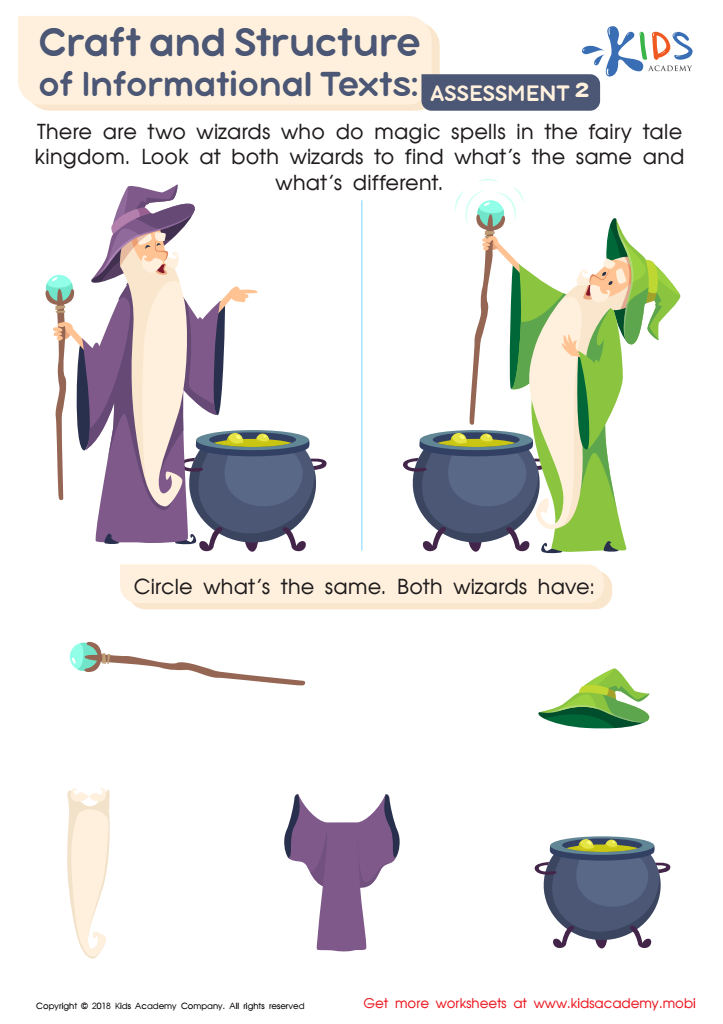

Craft and Structure of Informational Texts: Assessment 2 Worksheet
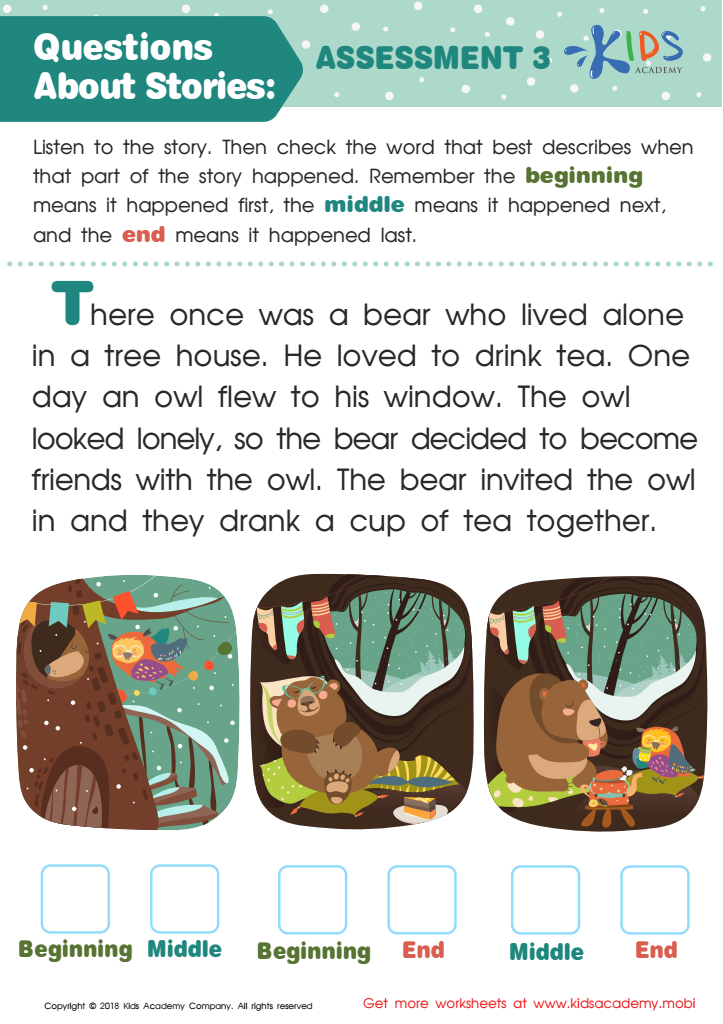

Questions About Stories: Assessment 3 Worksheet
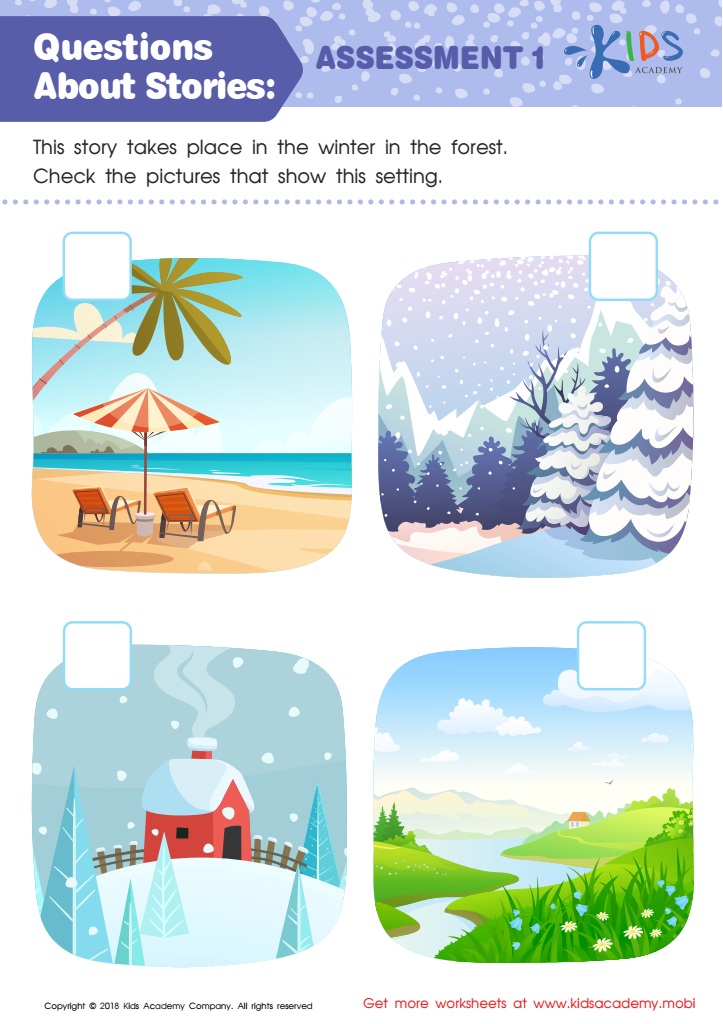

Questions About Stories: Assessment 1 Worksheet
Easy Reading activities for children aged 4-7 are crucial for developing foundational literacy skills that serve as building blocks for future learning. During these formative years, early exposure to reading not only enhances vocabulary and comprehension but also fosters a love for literature. Engaging in reading activities enriches children's imagination, encourages critical thinking, and helps them make sense of the world around them.
Parents and teachers play a vital role in this developmental phase. By prioritizing Easy Reading activities, they can provide varied and enjoyable experiences, making learning engaging and effective. Activities like storytelling, phonics games, and alphabet songs can enhance children’s listening and speaking skills, while interactive reading sessions can build confidence and promote social skills through shared experiences.
Furthermore, a focus on early reading can help identify any potential learning challenges. Early intervention can significantly impact a child’s academic trajectory. As proficient readers tend to perform better in school and are more likely to pursue lifelong learning, investing in these early literacy activities is essential. Ultimately, fostering a strong reading foundation in young children sets them on a path to academic success and empowers them for the challenges ahead.
 Assign to My Students
Assign to My Students















